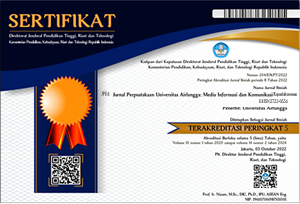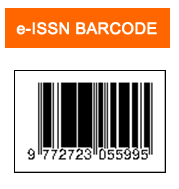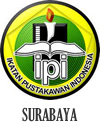Islamic Ethics as Moral Regulations in Library Writing Productivity
Downloads
Writing is like speaking verbally in that it requires ethics in producing to delivering. Therefore, this article deliberately raises the theme of Islamic ethics in the context of writing. The purpose of this writing is that in carrying out their duties and responsibilities as information managers, librarians maintain ethics anywhere and in any context, including in writing activities. This study used a qualitative research type, with data collection using interviews, observation and documentation. Interviews were carried out by purposive sampling to librarians who were active in producing papers at PTKIN in Central Java which had been indexed on Google Scholar. The results of the study inform that Islamic ethics which play a role as moral regulation in this writing activity are the prophetic characteristics of the Prophet, namely sidiq which means honest, amanah which means trustworthy, fathonah which means wise, patient, and tabligh which means having good critical power and can deliver. Librarians as human resources in an organization occupy a strategic position in determining the success of an organization. The development of science and technology provides its own challenges for HR (Librarians) to always adapt to survive and develop to become one of the keys to achieving the goals of an organization. Islamic ethics like this are expected to be well internalized into the souls of librarians who incidentally will always be related to information and the world of librarianship.

This work is licensed under a Creative Commons Attribution-NonCommercial-ShareAlike 4.0 International License.
1. The journal allows the author to hold the copyright of the article without restrictions.2. The journal allows the author(s) to retain publishing rights without restrictions
3. The legal formal aspect of journal publication accessibility refers to Creative Commons Attribution- NonCommercial-ShareAlike: CC BY-NC-SA





















